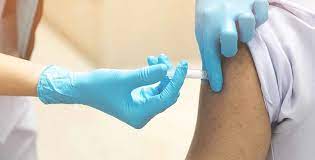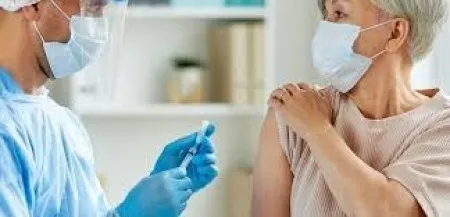In some cases, pneumonia can be life-threatening, especially for older adults, infants, and people with weakened immune systems. Given its potential severity, taking preventive measures against pneumonia is crucial.
The Importance of the Pneumonia Shot
One of the most effective ways to prevent pneumonia is through vaccination. The pneumonia shot, also known as the pneumococcal vaccine, helps protect against infections caused by Streptococcus pneumoniae, the bacterium responsible for many cases of pneumonia. This vaccine is particularly important for individuals at higher risk of developing serious complications from pneumonia.

Types of Pneumonia Vaccines
There are two main types of pneumonia vaccines available:
- Pneumococcal Conjugate Vaccine (PCV13 or Prevnar 13): This vaccine is recommended for infants, young children, and adults over the age of 65. It protects against 13 types of pneumococcal bacteria, which are responsible for the majority of severe infections in these groups.
- Pneumococcal Polysaccharide Vaccine (PPSV23 or Pneumovax 23): This vaccine is recommended for all adults over the age of 65 and for people aged 2 to 64 with certain medical conditions, such as chronic heart or lung diseases, diabetes, or a weakened immune system. PPSV23 protects against 23 types of pneumococcal bacteria.
Who Should Get the Pneumonia Shot?
The Centers for Disease Control and Prevention (CDC) provides clear guidelines on who should receive the pneumonia shot:
- Infants and young children: PCV13 is part of the routine childhood vaccination schedule, typically given in a series of four doses at 2, 4, 6, and 12-15 months of age.
- Adults aged 65 and older: Both PCV13 and PPSV23 are recommended for adults in this age group. The CDC suggests that older adults receive PCV13 first, followed by PPSV23 at least one year later.
- People with certain health conditions: Individuals with chronic illnesses such as heart disease, lung disease, diabetes, or those with compromised immune systems should also receive the pneumonia vaccine. Depending on their specific health situation, they may need both PCV13 and PPSV23.
How Effective is the Pneumonia Shot?
The pneumonia shot is highly effective in preventing severe pneumococcal disease, including pneumonia, meningitis, and bloodstream infections. Studies have shown that the vaccine can reduce the risk of pneumococcal pneumonia by up to 75% in older adults. Moreover, by preventing these infections, the vaccine also helps reduce the need for hospitalizations and the potential complications associated with pneumonia.
Side Effects of the Pneumonia Shot
Like all vaccines, the pneumonia shot can cause side effects, although they are generally mild. Common side effects include redness, swelling, or pain at the injection site, as well as mild fever or fatigue. Serious side effects are rare, but if they occur, they should be reported to a healthcare provider immediately.
Myths and Misconceptions
There are several myths surrounding the pneumonia shot that may cause hesitation in getting vaccinated. Some people mistakenly believe that the vaccine can cause pneumonia, but this is not true. The pneumonia shot contains only inactivated (dead) bacteria or bacterial components, so it cannot cause the disease it is designed to prevent.
Another common misconception is that once you’ve had the shot, you are protected for life. In reality, while the vaccine provides long-lasting protection, some people may need booster shots, especially if they received the vaccine at a younger age or have certain health conditions.
Conclusion: A Simple Step for Significant Protection
Pneumonia is a serious health threat, particularly for vulnerable populations. The pneumonia shot is a safe and effective way to protect yourself and your loved ones from the potentially devastating effects of pneumococcal disease. By staying informed and up-to-date with vaccinations, you can take an essential step towards maintaining good health and preventing serious illness. If you or a loved one falls into a high-risk category, talk to your healthcare provider about getting the pneumonia shot—it could be a decision that saves a life.
